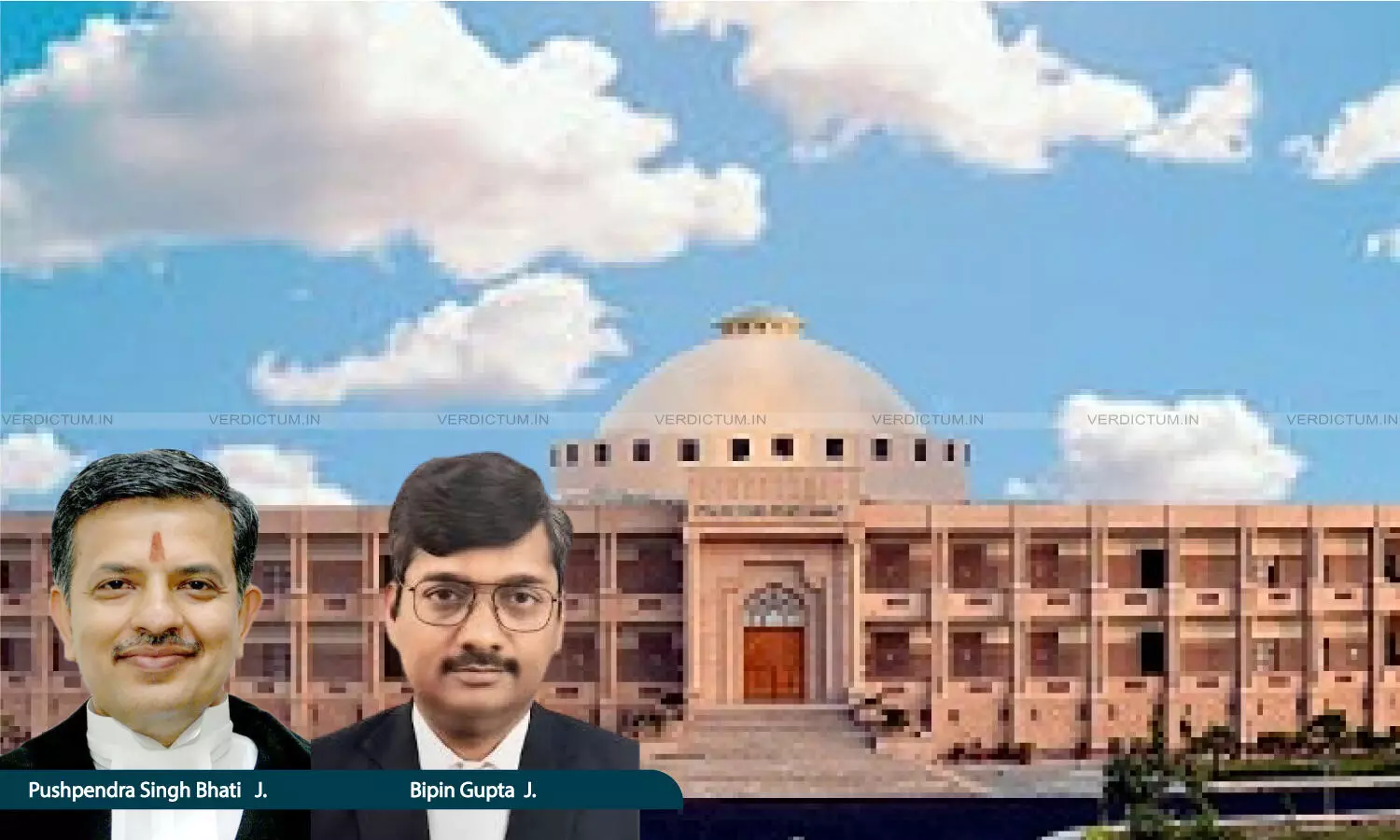
Justice Pushpendra Singh Bhati, Justice Bipin Gupta, Rajasthan High Court
Contemporaneous Instructions Supplemented To Rules & Issued Before Commencement Of Recruitment Process Are Integral To Advertisement: Rajasthan High Court Reiterates
 |
|The controversy before the Rajasthan High Court pertained to the eligibility of candidates who had appeared in the final year of LLB examination in 2024 but obtained their degrees after the last date of application.
The Rajasthan High Court dismissed the Special Appeals filed by the Rajasthan Public Service Commission and reiterated that where the rules are supplemented by contemporaneous instructions issued before commencement of the process, such stipulations must be treated as binding and integral to the advertisement.
The controversy before the High Court pertained to the eligibility of candidates who had appeared in the final year of LLB examination in 2024 but obtained their degrees after the last date of application, i.e., April 12, 2024.
Referring to the judgment in Tej Prakash Pathak & Ors. v. Rajasthan High Court & Ors. (2024), the Division Bench of Justice Pushpendra Singh Bhati and Justice Bipin Gupta stated, “The ratio of Tej Prakash Pathak(supra) thus fortifies the view that where the rules are supplemented by contemporaneous instructions issued before commencement of the process, such stipulations must be treated as binding and integral to the advertisement.”
Advocate Khet Singh Rajpurohit represented the Appellant while AAG B.L. Bhati represented the Respondent.
Factual Background
The Rajasthan Public Service Commission issued an advertisement for the recruitment of Assistant Prosecution Officer under the Rajasthan Prosecution Subordinate Service Rules, 1978, to fill 181 vacancies. The selection process was conducted in two stages: a preliminary examination followed by a written main examination. The dispute was regarding the date by which candidates must have qualified for the required eligibility criterion of an LLB degree, as prescribed in the advertisement. The Appellant Commission claimed that the advertisement itself prescribed a last date; therefore, the relaxation beyond the last date was not permissible and was wrongly granted by the Single Bench.
Reasoning
The Bench found that the advertisement did specify the last date, but at the same time, the website instructions clearly outlined the eligibility criteria for candidates, specifically the requirement of an LL.B degree. It was also not disputed by the RPSC that the appearing candidates were those who could not complete their degree in the very year they appeared for the examination.
The Bench referred to Tej Prakash Pathak (Supra), wherein it has been held that while administrative instructions may supplement statutory rules where they are silent, no departure from or dilution of the procedure prescribed in the extant rules is permissible once the recruitment process has commenced. The Bench was of the view that in the case in question, it could not be said that there was any midstream change of the “rules of the game”. It was noticed that, on the contrary, the corrigendum and the online instructions explicitly formed part of the original advertisement itself, thereby clarifying at the outset that “appearing” candidates would be treated as eligible.
The Court also mentioned that once there was a clear stipulation on the official website of the RPSC that candidates “appearing” in a particular year, i.e. 2024, would be treated as eligible, and it was further not in dispute that all such candidates completed their LL.B in the same year 2024, there remained no justification for denying them eligibility within the stipulated time. It was further observed that the perspective of the official website of the RPSC giving details of the examination could have been relevant for non-consideration only in a situation where such stipulation ran into direct contravention with the statutory rules. In the present case, there was no such direct contravention, it held.
“In the present case, however, the advertisement itself categorically states that the website instructions shall constitute an integral part of the advertisement, and once so incorporated, the advertisement itself must be deemed to have attracted the proviso regarding eligibility of “appearing” candidates”, the Bench held while dismissing the special appeals.
Cause Title: The Rajasthan Public Service Commission v. Lavanshu Sankhla (Neutral Citation: 2025:RJ-JD:35948-DB)
Appearance
Appellant: Advocates Khet Singh Rajpurohit, Veeram Singh
Respondent: AAG B.L. Bhati, AGC Sukhdev Sharma, AGC Abhilasha Bora, Advocates Pravin Vyas, Khushbu Choudhary, Dheeraj Jangid